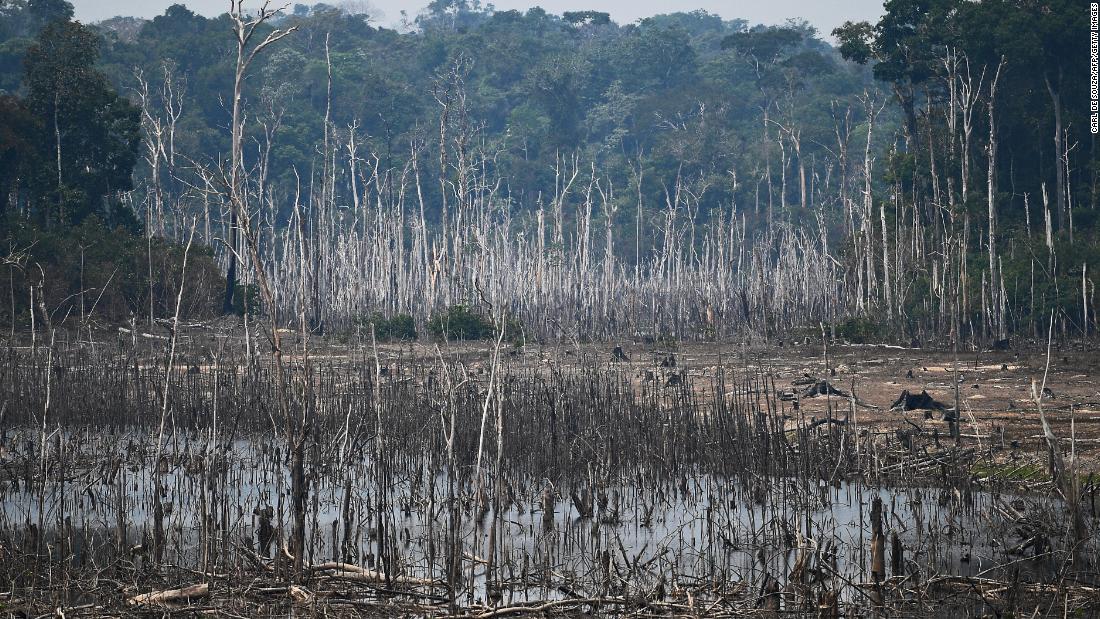
The study found that while most of Brazil’s agricultural production is deforestation-free, 2% of the properties studied in the Amazon and Cerrado are responsible for 62% of illegal deforestation. A significant part of that deforestation is linked to agricultural exports, according to the study.
“This small but very destructive portion of the sector represents a threat to the economic prospects of Brazilian agribusinesses, in addition to causing regional and global environmental consequences,” the report’s authors said.
Meanwhile, the far-right, business-friendly president promised to explore the economic potential of the rain forest. He found that in China, the country’s largest trading partner, it increased imports of beef and soybeans from Brazil in the wake of the U.S. trade war.
The method
To do the link between illegal deforestation and agricultural exports, The team, led by Raoni Rajao, professor of Social Studies in Science at the Federal University of Minas Gerais, compiled maps of land use and deforestation for Brazil and information on 815,000 rural properties in the Amazon and Cerrado, as well as the livestock transport. documents. They also developed software that calculated the level at which each property studied complied with environmental and deforestation laws.
They found that around 1.9 million metric tons of soybeans grown on properties with illegal deforestation may have reached EU markets annually. This means that 22% of all soybeans exported from the region to the EU are potentially contaminated.
The authors warn that the real percentage could be higher since their sample covered 80% of the soybeans planted in the region.
Approximately 41% of EU soy imports come from Brazil, equivalent to 13.6 million metric tons per year.
Between 25% and 40% of EU beef imports come from Brazil. The study estimates that 12% of the 4.1 million cows marketed in slaughterhouses in the states of Para and Mato Grosso in 2017, came directly from properties with potentially illegal deforestation.
But the number increases to around 50% when taking into account the suppliers that had indirect contamination with illegal deforestation. This includes if a ranch does not deforest but buys cattle from one that does.
The study also warns that in the state of Mato Grosso, contamination of beef exports from illegal deforestation could reach 44% in the Amazon and 61% in the Cerrado regions.
The report says the Brazilian government insists “that national laws guarantee high conservation standards and, therefore, trade bans should not include legally authorized deforestation.” But its results could have enormous implications for how countries proceed with trade agreements when they know that part of imports could be linked to illegal deforestation in the Amazon.
“International buyers of agricultural products from Brazil have expressed concern about products contaminated by deforestation,” the authors said in the report. “Among the concerns is that the increase in greenhouse gas emissions from deforestation and forest fires in Brazil could cancel the EU’s climate change mitigation efforts.”
Deforestation
The first quarter of 2020 had already seen more than a 50% increase in deforestation compared to last year, according to INPE data.
As global demand for meat skyrockets, and when China turns to Brazil for its soy supply amid the trade war with the United States, experts fear Brazil’s agricultural boom will cost habitats like the Cerrado. and the Amazon.
In their report, the authors found that 120,000 properties in their study were deforested after 2008. About 36,000 of those properties in the Amazon, representing 84%, and 27,000 thousand in the Cerrado, 35%, carried out this deforestation which they said was in all likelihood done illegally.
The authors said that “all economic partners in Brazil should share the blame for indirectly promoting deforestation and GHG (greenhouse gas) emissions by not restricting imports and consuming agricultural products contaminated with deforestation, illegal or otherwise.”
The authors said the report raised awareness of the importance of lobbying Brazil “to conserve its environmental assets” and international efforts to reduce greenhouse gas emissions.
CNN’s Amy Woodyatt, Flora Charner and Eliza Mackintosh contributed.
.